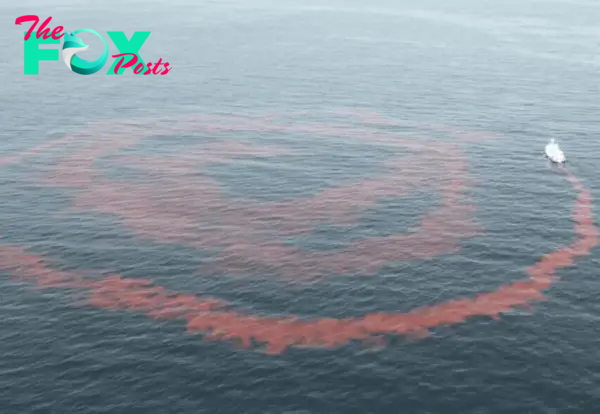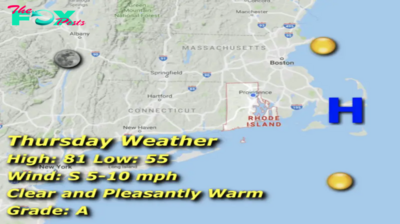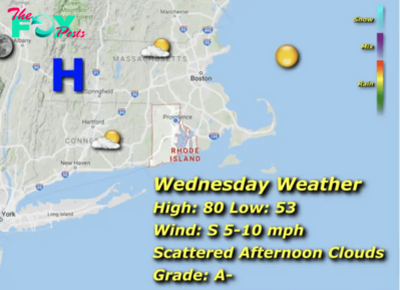Lifestyle
Climate change experiment on hold to put lye and caustic soda into ocean – The Nantucket Current
WHOI Delays Geoengineering Experiment To Combat Climate Change In Waters Off Nantucket
JohnCarl McGrady • Aug 26, 2024 – The Nantucket Current – Photo
Facing pressure from the National Marine Fisheries Service and difficulty in acquiring a fully-equipped research vessel, Woods Hole Oceanographic Institute has delayed a controversial small-scale study on the effects of ocean alkalinity until next summer.
Dubbed the “LOC-NESS” project – short for Locking away Ocean Carbon in the Northeast Shelf and Slope – the experiment involves dumping 20 metric tonnes of sodium hydroxide (also known as lye and caustic soda) and up to 75 kilograms of tracer dye into the water southwest of Nantucket.
The experiment will be “one of the first of its kind in the world, and the first of its kind in the Northeast United States.”

Initially scheduled to begin this month, the experiment will have to wait another year after scheduling conflicts prevented Woods Hole from using the research vessel they needed to monitor the effects of the sodium hydroxide. The delay will also give more time for the experiment’s opponents to make their case.
In a letter of concern to the Environmental Protection Agency, which supports the experiment as necessary and safe, the National Marine Fisheries Services wrote that “the proposed experiment has the potential to injure or kill all life stage of federally-managed species (especially planktonic egg and larval stages) that may occur in the action area.”
Woods Hole scientists believe the experiment is a critical step in the fight against climate change and human-caused ocean acidification.
If successful, ocean alkalinity enhancement could increase the ocean’s ability to remove carbon dioxide from the atmosphere, lessening the effects of climate change. As the world’s biggest carbon sink, the ocean is a key part of the fight against climate change, and a more alkaline ocean can sequester more carbon—and is healthier for aquatic life. Carbon dioxide interacts with naturally occurring chemicals in ocean water to form bicarbonate, which can store carbon dioxide longer than most biological sinks. By pouring sodium hydroxide into the water, Woods Hole hopes to test whether humans can boost ocean alkalinity and reduce atmospheric carbon dioxide in one stroke.
But despite its potential benefits, the experiment has received sharp pushback from environmentalist groups such as Friends of the Earth and local fishermen.
Reprinted with permissions from The Nantucket Current
-

 Lifestyle3h ago
Lifestyle3h agoNFL CONTROVERSY: Lamar Jackson Refuses to Give Credit to Steelers’ Defense After Crushing Loss—Fans Are Divided.Cau
-

 Lifestyle3h ago
Lifestyle3h agoNFL FEUD ERUPTS: Patrick Queen Claps Back at Bart Scott’s Controversial Comments Following Ravens’ Loss to Steelers.Cau
-

 Lifestyle5h ago
Lifestyle5h agoGormley's bridge to China | The Express Tribune
-

 Lifestyle5h ago
Lifestyle5h agoThree Pakistani streetwear moments that stole the show | The Express Tribune
-

 Lifestyle9h ago
Lifestyle9h agoULTIMORA: Megan Fox VISTA fuggire dal paese in un nuovo video dopo lo scandalo Diddy.cau
-

 Lifestyle9h ago
Lifestyle9h agoULTIMORA: 50 Cent fa UNALTRA battuta sullolio per bambini di Diddy mentre una docuserie incriminante arriva su Netflix.cau
-

 Lifestyle9h ago
Lifestyle9h agoI Kicked Out My Grandparents, Who Raised Me, From My Graduation — Karma Quickly Taught Me a Lesson
-

 Lifestyle9h ago
Lifestyle9h agoI Noticed Something Odd About the Bride at My Best Friend’s Wedding – When I Lifted Her Dress, Everyone Was Left in Shock



























